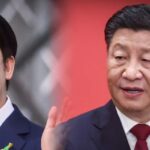Tensions expected over U.S. tariffs as ministers push for united stance on non-tariff issues and war-related fallout
ALBERTA, CANADA — Finance leaders from the world’s most advanced economies are convening in Canada this week for a high-stakes G7 summit, where a unified position on non-tariff trade practices and continued support for Ukraine top the agenda. However, U.S. resistance to new trade frameworks may complicate consensus.
The summit, which runs Tuesday through Thursday in Canada’s western province of Alberta, brings together finance ministers and central bank governors from the Group of Seven: the United States, Canada, United Kingdom, Germany, France, Italy, and Japan.
The talks are expected to confront multiple global challenges from U.S. President Donald Trump’s tariff policies to the economic impact of the war in Ukraine.
“This is a critical time for the G7 to demonstrate unity, not only in supporting Ukraine, but in addressing distortive trade practices,” said a senior European official ahead of the meeting.
Ukrainian Finance Minister Sergii Marchenko is also attending the summit and is expected to urge continued economic and military backing for Kyiv amid ongoing Russian aggression.
While non-market and non-tariff issues are key items on the agenda, Washington’s protectionist stance could pose a roadblock. Trump’s administration has imposed sweeping tariffs on steel, aluminum, and other goods, straining relations with allies who are calling for more cooperative global trade measures.
The G7 ministers are also set to review global economic conditions, inflationary trends, and the resilience of financial systems in the face of geopolitical uncertainty.
No final communique has yet been confirmed, but sources close to the summit say an effort will be made to project unity on Ukraine, even if differences remain over trade.



